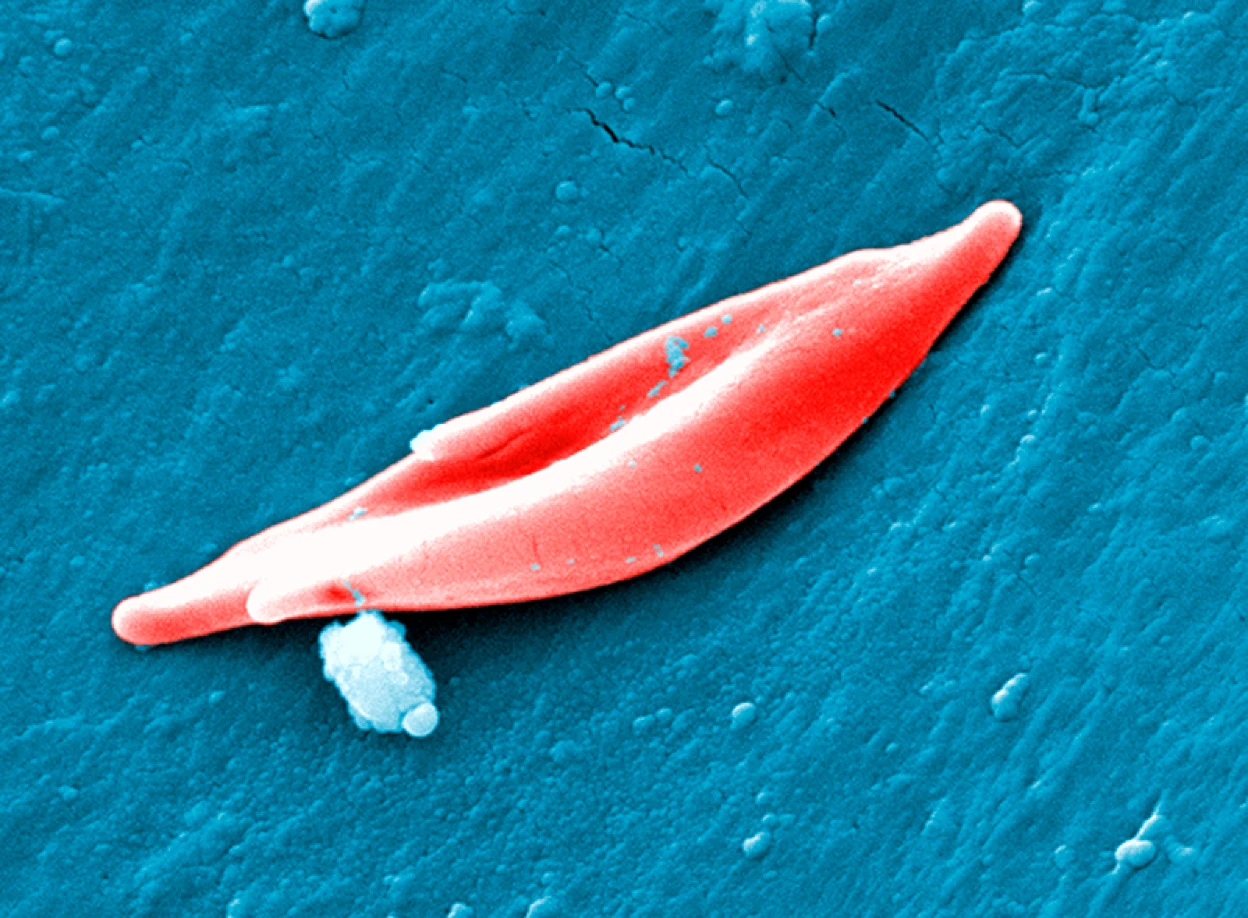CRISPR-Cas9 has been one of the most pivotal developments in 21st Century Genetics. To put it simply, CRISPR technology uses a "Guide RNA" to bind to a specific site of DNA. That RNA-DNA pair is then cleaved with an Endonuclease and a cut in the DNA chain is made. Selected/Desired genes can then be inserted into the cleaved portion of DNA allowing for novel protein expression. For agriculture this has been particularly well studied as it allows botanists to insert genes that make crops resistant to pathogens, tolerate droughts better, or grow uniquely colored/flavored products. The same pattern of applications have been used in animal agriculture, making many disease resistant breeds of fish, poultry, etc.
A Red Blood Cell with Sickle Cell Anemia
In medicine, gene therapy is becoming one of the hot topics. Recently, CRISPR-Cas9 was approved by the FDA for human trials to treat Sickle Cell Anemia. Sickle Cell Anemia is caused by a genetic mutation that inhibits the formation of hemoglobin. By manipulating the genomes of those with sickle cell anemia, scientists could theoretically let those afflicted produce normal hemoglobin, and in turn be cured of their condition.
A diagram on how CRISPR-Cas9 works
One worry I have is whether or not mutations associated with sickle cell anemia are pleiotropic. If they are there is a potential for patients to produce healthy hemoglobin but could potentially express other currently unknown problematic proteins. However, given the thoroughness of modern medical trials, this worry seems highly unlikely.

CRISPR has always been a hot topic in biomedical ethics, so I find it interesting that it was finally approved. Seeing as it definitely has benefits in animals in the lab, I wonder if there will be any issues introducing it to the human genome. I do, however, feel like this is a big step in the right direction for science and especially medicine. Using this technology for the benefit of the human race is what science is ALL about. Excellent & exciting post!
ReplyDeleteI know that CRISPR was a recent technology since the past few decades and I know a lot of individuals have had controversy over the use. I think that it is great it is being used to help those with sickle cell disease. Being able to use a treatment like this can save many from years of suffering and physical blood vessel damage from the sickled cells.
ReplyDeleteCRISPR has many beneficial uses in the medical field, and its approval in the US is a great advancement. Having a friend with sickle cell I see how detrimental a disease it can be. A treatment like this can give the thousands of people with sickle cell a less painful life.
ReplyDeleteThis approval is a breakthrough in medicine considering the fact that CSISPR has many advantages in medicine especially regarding treatment of people living with the sickle cell disease.
ReplyDelete